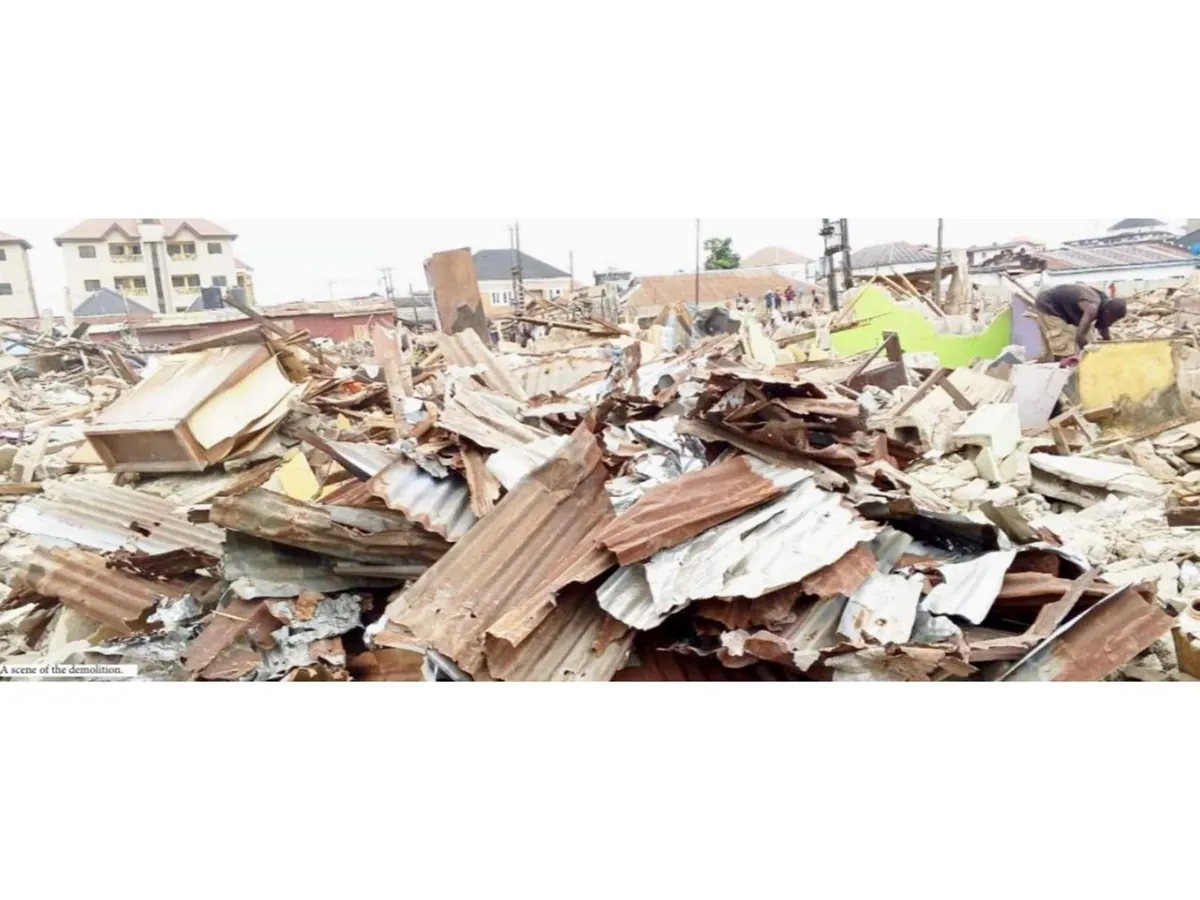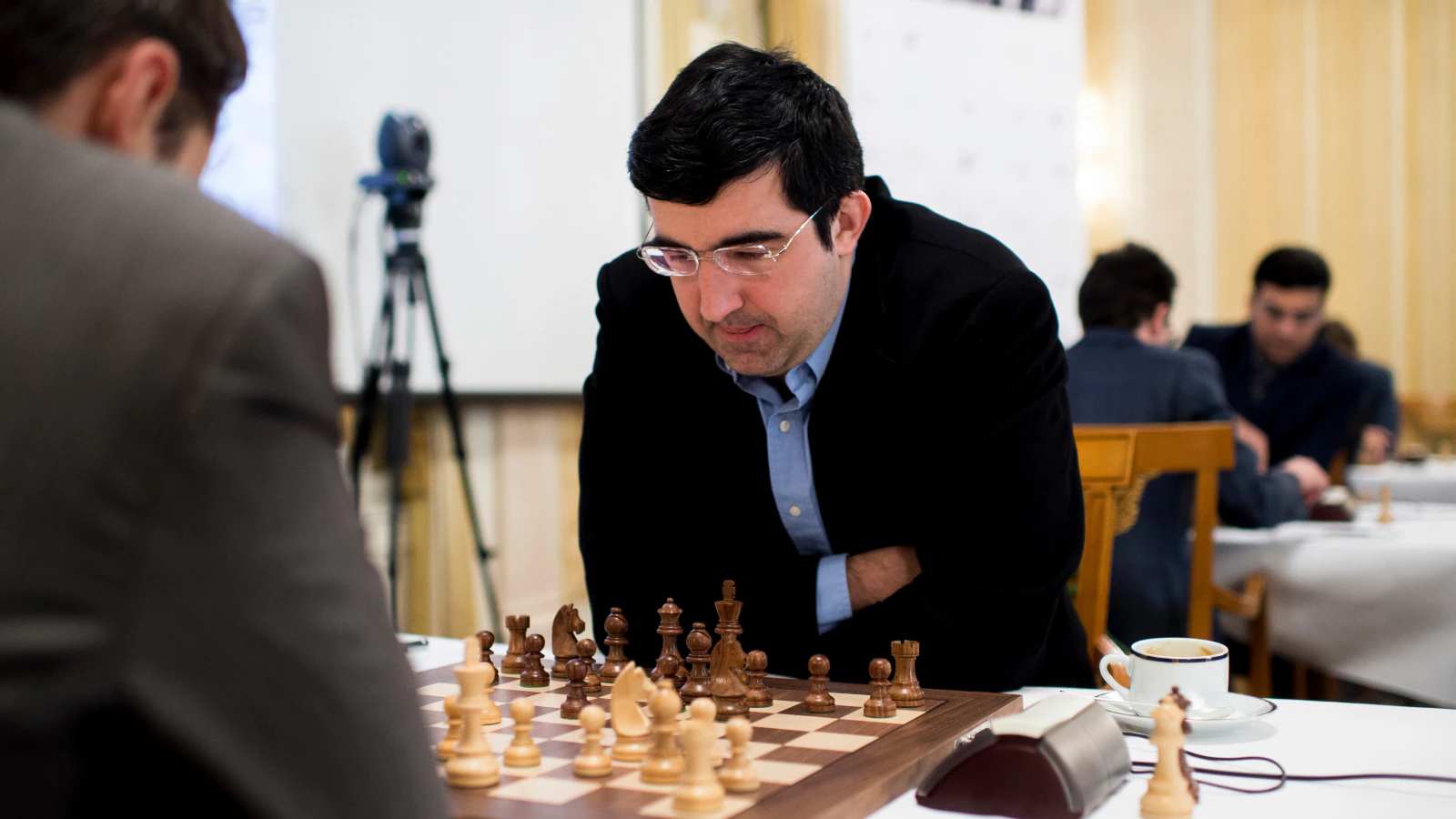Copyright tribuneonlineng

As residents count their losses • Govt justifies exercise Residents of Oworonshoki have not stopped counting their losses. Those in Trade Fair Complex, too, are still licking their wounds following the demolition of their homes and shops by the Lagos State government. For the Oworonshoki neighbourhood, it was a moment of confusion and outrage as residents ran helter-skelter to save their children and salvage their valuables from total destruction by the rampaging government bulldozers. Even the innocent school children were not spared. They watched from a distance as the houses, some of which they had lived in with their parents for years, and the schools they saw as offering hope for a better future were pulled down by the bulldozers. The most shocking experience for the residents was that the demolition exercise happened at midnight recently, despite a court order restricting the state government from carrying out further demolition. It caught many residents who had relied on such injunction unawares. Interestingly, the Oworonshoki demolition came less than two weeks and a month after similar exercises were carried out in Festac and the Trade Fair Complex respectively, on the Lagos-Badagry Road. Although the state authority denied involvement in the Festac demolition, it, however, took responsibility for the demolition of structures in Trade Fair Complex and Oworonshoki. The scene at Oworonshoki was enough to move a steely mind to tears. It was total devastation witnessed by Saturday Tribune when on a visit to the area. Piles of broken blocks, twisted roofing sheets and scattered household items marked where hundreds of families once lived and traded. Besides, women and children were stranded under the open sky, while some residents were seen sitting helplessly beside salvaged possessions, hoping to sell whatever was left to interested buyers. “I just want to sell these rusted pots, broken fan and other items so that I can add the money with what I have to quickly look for another accommodation to rent,” Mrs. Rachel, one of those affected, said in an emotion-laden voice while recounting her ordeal. Justification for Demolition Justifying the demolition, Lagos authorities said the buildings were demolished primarily for non-compliance with building regulations, such as constructing without approval or violating zoning laws. Other reasons include creating space for public infrastructure projects, addressing environmental concerns and safety hazards, or urban renewal. For the Oworonshoki demolition, the government justified the action, saying Oworonshoki is one of the communities earmarked under the state’s comprehensive urban renewal and regeneration plan. The government maintained that the affected structures were unsafe for habitation and constituted environmental hazards. Defending its action in another location, the Lagos State government said the demolished buildings at the Trade Fair Complex were illegal and never got its approval. It added that the buildings were constructed on the canal. Speaking on the demolition exercise at Trade Fair along the Lagos-Badagry Expressway, the state’s Commissioner for Information, Gbenga Omotoso, maintained that those attributing the government’s action to ethnicity are ignorant of the law. “It’s absurd. It’s unthinkable because Mr. Babajide Sanwo-Olu has provided us with service for about six years. And in those six years, nobody has come up to complain that he has had anything to do with any segregation or discrimination in terms of religion or ethnicity. “We all know those things they are talking about — discrimination. They are things that people who don’t even know us are saying. People who don’t live in Lagos. Some of those things you see on social media, if you check those perpetrating them, they are people who live miles and miles away. “How can you build a house without permits? It’s not done anywhere. The government said, look, you can’t do this. Even if it is owned by the Federal Government, what the law says, according to the Supreme Court judgment of 2003, Attorney General of Lagos State vs Attorney General of the Federation, supported by other states, is that only the states have the powers to issue building permits. That’s the law all over the world,” Omotoso stated. Corroborating Omotoso, the Commissioner for the Environment and Water Resources, Wahab Dosumu, said that some people were just playing politics with the development. “Some of those meant to be lawmakers came to Trade Fair to break the laws. If there was a Supreme Court judgment as far back as two decades ago that said you cannot build without state approval, and this was by a full panel of the Supreme Court, why should some people be exempt? “People were served notices by the Lagos State government not to build over a year ago. They were beating and detaining government officials until things got to the point that we said enough is enough. “We should separate emotions from politics,” he said. The commissioner argued that when people know the consequences of bad behaviour and the government enforces those consequences, citizens will begin to comply. Residents Recount At Oworonshoki, both parents and children were stranded, counting their losses after the demolition exercise. Many children who were supposed to be in school were stranded at Ajulari Community, Oworonshoki, Lagos, following the demolition of their schools and houses. The pupils were seen with their parents combing the rubble of the demolished buildings in search of valuables when Saturday Tribune visited. When asked why they were not in school, one of the pupils, who identified herself simply as Kikelomo, said in an emotion-laden voice: “Some people from the government came in the night to demolish our schools and houses.” Her mother did not allow her to talk further as she confronted the reporter. The woman, Mrs. Fariat Ajayi, recounted her ordeal, saying she had lost everything to the demolition exercise. “My house and shop were demolished at the same time. The two private schools in the community were also demolished. Jumai’s children’s school was also demolished. I don’t even know where to start again; no home, no business, no school for my children,” she lamented. Mrs. Ajayi said she and her husband had been living in the neighbourhood for the past 25 years until the recent demolition exercise. She said that at the initial stage, government officials told homeowners in the enclave to repair and repaint their buildings, which many of them did before the demolition exercise. She called on well-meaning Nigerians to come to their rescue. Saturday Tribune gathered that no fewer than 50,000 residents were affected by the demolition. Another parent, Mrs. Janet Abiodun, recounted: “The children have been to their school this morning. They told them there is no school; that their school has been demolished. That’s why you are seeing them sitting with their moms.” Abiodun, whose shop was demolished, said her business was affected, adding that houses belonging to many of her customers were also demolished. She claimed to have been running a temperature since Sunday. The entire neighbourhood and surrounding environment were tense on Monday morning as more than 50 armed policemen stationed armoured tanks, pickup vans, and cars at strategic locations in the community to quell any attempt at protest by the affected residents. The residents alleged that the state government ignored the court order restricting it from going ahead with the demolition. They also alleged that the Lagos Task Force team resumed demolition of houses in the community at midnight on Sunday, when residents were asleep and unprepared. They said they could no longer sleep as everybody was running helter-skelter, looking for ways to salvage their valuables. Another resident, Baba Wale, who did not want his full name in print, said he had lost his inheritance to the demolition, explaining that the house demolished was built by his late father as far back as 1985. He claimed to have lived in the environment, married and given birth to a child who is now in the university. Due to the demolition, he said he couldn’t go to work or do any other thing but begin searching for alternative accommodation. He said he had sent his children and their mother to his in-laws until he could secure another accommodation. He described the compensation claims by the Lagos State government as a “charade,” saying officials merely lined up a few people at night, gave them money as compensation and took their photographs. “If they are so sure they want to pay compensation, why gather a few people at night to give money? Why not in the daytime? “Government woke up one morning, sent us notice in March 2025, started demolition in June and July, telling us we are not supposed to be here. Where are we supposed to be? My father spent his pension building this house that was demolished. “I don’t even know where to go from here. Many of us don’t know. We have nowhere,” he said. One three-storey building was spared in the entire community. Other eyewitnesses said the demolition team operated under the cover of darkness, pulling down structures that had been spared in earlier phases. “This is inhuman,” one landlord lamented. Court Order It was learnt that in a ruling delivered on October 23, 2025, Justice A.G. Balogun of the Lagos State High Court, Ikeja, in suit no. ID/9910GCM/2025, granted an interim injunction restraining the Lagos State government, the Attorney-General, the Commissioner for Physical Planning and Urban Development, and the Lagos State Building Control Agency (LASBCA), whether by themselves, their servants, agents, privies, contractors, or assigns, from continuing with the demolition of properties allegedly belonging to members of the Itesiwaju Ajumoni Community Development Association (CDA). However, the Lagos State Attorney-General and Commissioner for Justice, Lawal Pedro, SAN, has denied allegations that the state government willfully disobeyed a subsisting court order by continuing demolition of houses in Oworonshoki, describing the claim as “false and unfair.” In an interview with reporters, Pedro insisted that no order of court was ever served on any agency of the Lagos State government before the latest phase of demolition took place. The Attorney-General maintained that government agencies cannot act on “verbal notice” of a court decision, insisting that until a formal service of process is made, the government cannot be accused of contempt. Pedro criticised what he described as the misuse of court processes against public interest, saying many litigants have resorted to using the judiciary “as an instrument of oppression” even when the government has shown leniency. According to him, demolition in Oworonshoki began nearly a month ago but was temporarily halted on the directive of Governor Babajide Sanwo-Olu to allow residents time to relocate. He, however, disclosed that the government had compensated affected persons despite doubts about their legal ownership of the properties. But in spite of the justifications for the exercise, for the victims and their sympathisers, it is definitely a demolition too many, and rather burdensome for those affected to bear.



